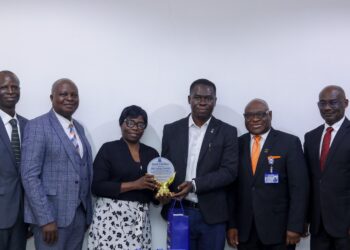The Nigeria Labour Congress (NLC) has urged the Federal and State Governments to prioritize teachers’ welfare by implementing a living wage, boosting education funding, and protecting the rights of private school teachers to unionize.
NLC President, Joe Ajaero, made the call in Abuja during the 2025 World Teachers’ Day celebration, themed “Recasting Teaching as a Collaborative Profession.” He said Nigeria must deliberately invest in education to rescue the sector from decline and reposition teachers for national development.
“The global teacher crisis highlighted by UNESCO, ILO, UNICEF, and Education International is our daily reality,” Ajaero stated. “We face a severe shortage of qualified teachers, alarming brain drain, and widespread professional isolation.”
Ajaero lamented that many untrained individuals now occupy classrooms, leading to poor educational outcomes. He described the average teacher-to-student ratio in Nigeria’s public schools—often 1:50—as “alarming and counterproductive.”
He called for a national framework to retrain and certify unqualified teaching personnel, stressing that while many people can teach, “not everyone is a teacher.”
‘Teachers Are Praised but Impoverished’
The NLC President criticized what he called Nigeria’s hypocrisy toward teachers.
“We praise teachers in speeches but starve them in reality,” he said. “We glorify the profession yet reward it with indignity, dishonor, and neglect. We cannot build a quality education system while teachers live in hardship.”
Ajaero questioned the rising cost of tuition and school levies despite stagnant teacher salaries.
> “Where does this money go? It certainly does not reach the teacher in the classroom. This injustice strikes at the very heart of our education system,” he said.
He argued that teachers’ welfare directly affects the quality of education, saying, “A teacher burdened by hunger, rent, and transport worries cannot be a source of creativity or inspiration. The rewards of teaching must be delivered here on earth, not postponed to heaven.”
Ajaero urged the government to meet UNESCO’s benchmark of allocating at least 6% of GDP and 20% of total public expenditure to education, noting that nations like China and India advanced only after prioritizing education.
“Every nation that has achieved sustainable progress has built it on the foundation of quality education. We must put our money where our mouth is—in education,” he emphasized.
He described teaching as the “queen of all professions” and insisted that a well-paid, motivated teaching workforce is the foundation of sustainable development.
Ajaero also decried the poor working conditions of teachers in Nigeria’s private schools, saying they are “among the most exploited workers in the country.”
“Many are denied the minimum wage, health insurance, pensions, and severance benefits,” he said. “Despite existing unions, some private school owners hide behind power and influence to evade the law.”
He called on the Nigeria Union of Teachers (NUT) to collaborate with unions in the private education sector to protect their members’ rights.
“In the spirit of this year’s theme, NUT should work closely with private school teachers so that by next year’s World Teachers’ Day, they will stand among us as equals,”
Ajaero appealed to the Ministers of Labour and Education to ensure private school teachers enjoy their constitutional right to unionize, as guaranteed by ILO Conventions 87 and 98 and Nigeria’s Constitution.
“On this World Teachers’ Day, let us make a collective vow—to fight for the teacher, secure their present, and by doing so, secure Nigeria’s future,” he declared.
“Long live the Nigerian teacher! Long live Nigerian workers! Long live the Nigeria Labour Congress! A people united can never be defeated!”



















































































 EduTimes Africa, a product of Education Times Africa, is a magazine publication that aims to lend its support to close the yawning gap in Africa's educational development.
EduTimes Africa, a product of Education Times Africa, is a magazine publication that aims to lend its support to close the yawning gap in Africa's educational development.